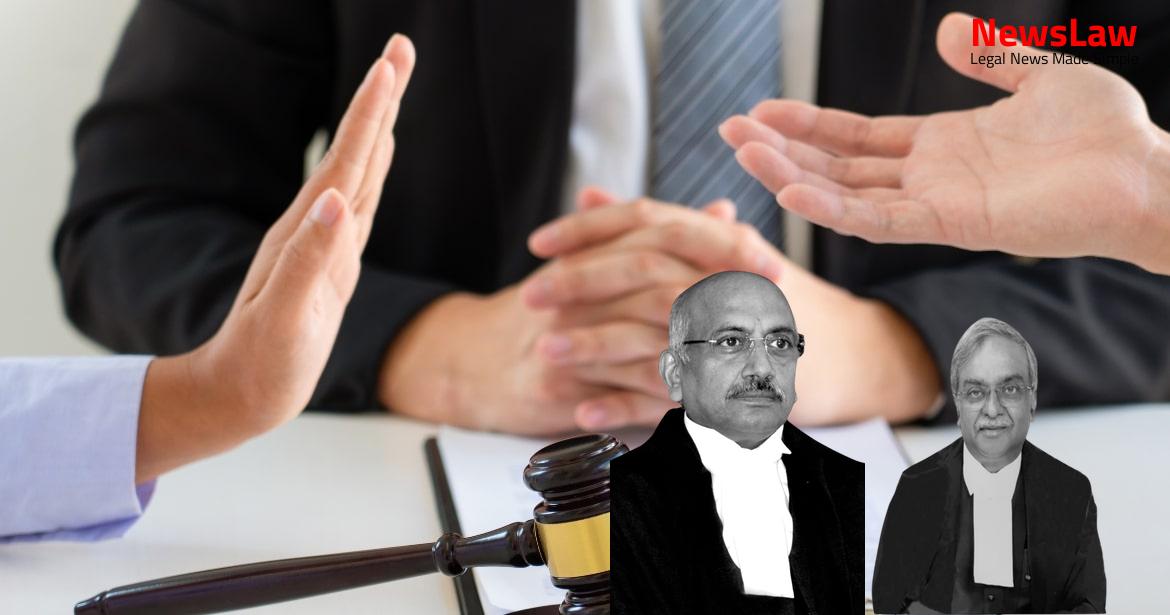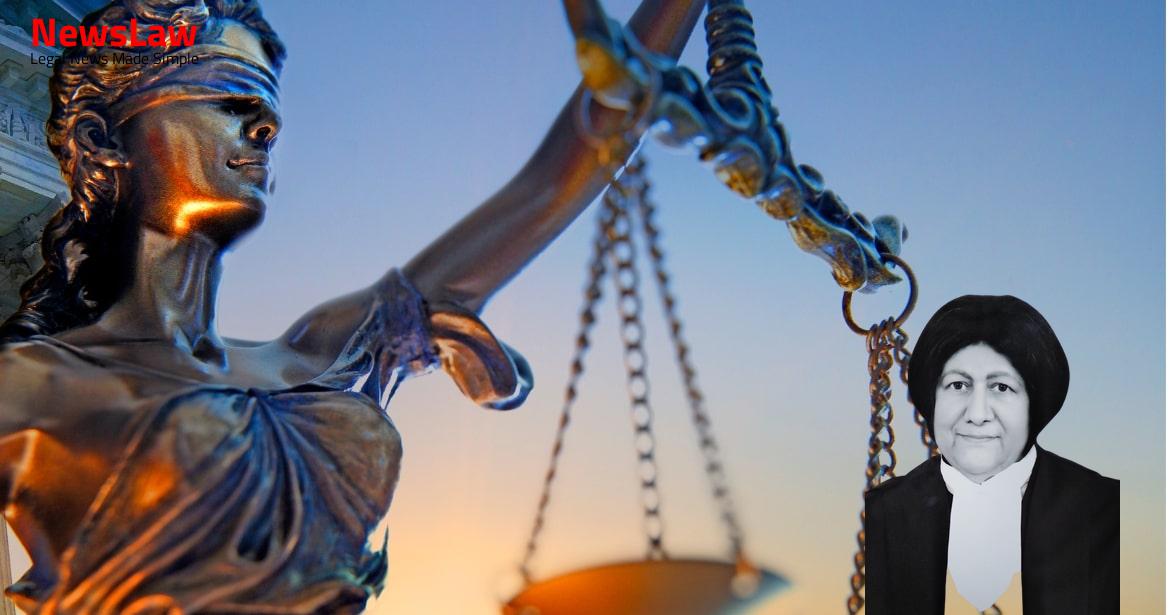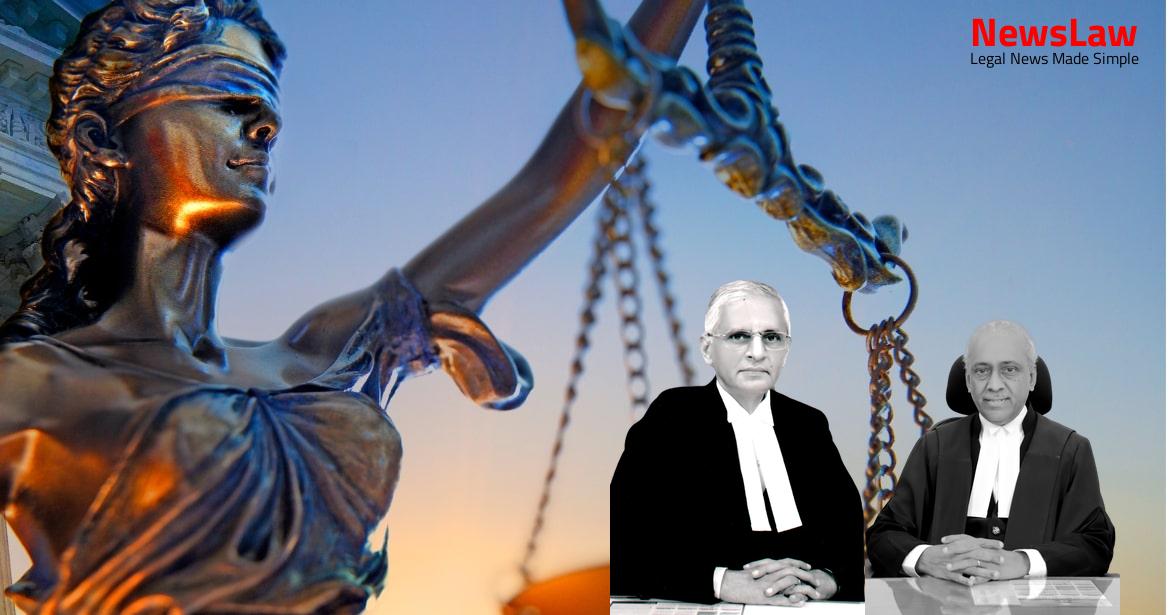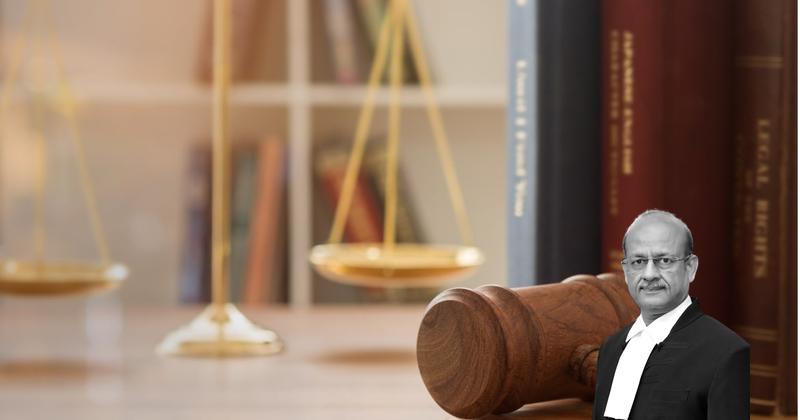Explore the intricate legal analysis conducted by the Court in a recent case, highlighting the challenges in the admissibility of evidence. The case delves into the nuances of evidence law, shedding light on the court’s considerations and decisions regarding the admissibility of crucial elements in the case. Dive into the complexities of legal analysis with this insightful exploration.
Facts
- The Trial Court allowed the application for permission to give secondary evidence of the original documents on the basis of Section 65(c) and the Indian Evidence Act, 1872.
- The State did not provide further evidence to prove the loss of the original documents, as required by the Trial Court.
- The objection by the defense was noted regarding the admissibility of the xerox copy of the enquiry report submitted by the three officers.
- The Enquiry Committee uncovered a scandal involving the General Manager of the Punjab Roadways Depot, causing a loss of lakhs of rupees to the government.
- FIR was registered based on the complaint by Malkiat Singh against the General Manager’s fraudulent activities.
- Twenty-three witnesses were examined by the prosecution and documentary evidence was filed during the proceedings.
- Four appeals were filed against the Trial Court’s judgment.
- The enquiry report was considered a fact-finding report and was not treated as evidence by the Trial Court.
- Surprise checking conducted by three officers led to a recommendation for suspending several officials and employees involved in the scandal.
- The High Court confirmed the conviction of conductors Jarnail Singh, Salwant Singh, and Balkar Singh.
- The High Court acquitted Inspectors Sohan Lal and Teja Singh.
- The High Court acquitted Managers/Senior Officials Jagdip Singh Galwatti and Amarjeet Singh Sandhu.
Also Read: Balancing Private Grievances and Public Interests
Arguments
- Appellants rely on the case of Ashok Dhulichand Vs. Madhavrao Dube to support their submissions.
- No evidence of sale of higher denomination tickets to passengers as no passenger was examined during the trial.
- Prosecution’s case is limited to possession of fake tickets, with no further evidence.
- Tickets seized were never observed by the Inspecting Team or police, and no segregation was done from conductors of different buses.
- Tickets were produced unsealed in court and supposedly proved by PW-8 and PW-15.
- Alleged used/fake tickets were taken into custody by Inspection Committee from conductors, but witnesses of their recovery had no personal knowledge.
- Excess cash allegedly found during inspection was not proven and no questions were asked to the accused under Section 313 CrPC.
- Relevant case laws such as Jai Dev Vs. State of Punjab and others were cited to support the argument.
- In support of the submissions, reliance was placed on specific judgments.
- PW-8 and PW-15 proved the recovery of the tickets while PW-20, PW-21, and PW-22 proved the inspection and enquiry report.
- Appellants are challenging the High Court judgment on technical grounds, and the substantive material on record should be examined.
- Counsel for the State of Punjab supported the High Court judgment based on reliable evidence.
- It was argued that the prosecution failed to prove its case beyond a reasonable doubt.
Also Read: Quashing of Criminal Proceedings Based on Insufficient Allegations
Analysis
- Failure of the Inspecting Team to prove the valid recovery of tickets.
- Lack of evidence of seized tickets being sealed at any stage.
- Witnesses (PW-8 and PW-15) were not present during recovery of tickets and stated that the tickets were not sealed.
- No numbers of the tickets issued for comparison were supplied to the witnesses.
- Inconsistencies in the statements of witnesses regarding the tickets and way-bills.
- The original enquiry report was not submitted as evidence and was only available as a photocopy.
- Enquiry report not considered as evidence due to lack of authenticity.
- Inability to connect seized tickets to specific buses and conductors.
- Efforts were not made by the prosecution to prove the loss of original documents for allowing secondary evidence.
- Unreliability of unconfirmed tickets to connect them to the appellants.
- Inconsistencies in the evidence presented by the Inspection Committee members.
- The appellants’ charge was not supported by evidence
- No reference to case laws relied upon by the appellants in the judgment
- Appeals allowed due to lack of evidence
- Enquiry report not proven by the State, leading to a vacuum of substratum for the prosecution’s case
Also Read: Reversal of Acquittal: High Court Convicts Accused in Murder Case
Decision
- The appellants were already on bail during the trial.
- Their bail bonds have been discharged.
- The conviction of the appellants has been set aside.
- The judgments of the High Court and the trial court regarding the appellants have been set aside.
- The appellants have been acquitted of all charges leveled against them.
Case Title: JARNAIL SINGH Vs. STATE OF PUNJAB (2022 INSC 708)
Case Number: Crl.A. No.-000634-000634 / 2010



